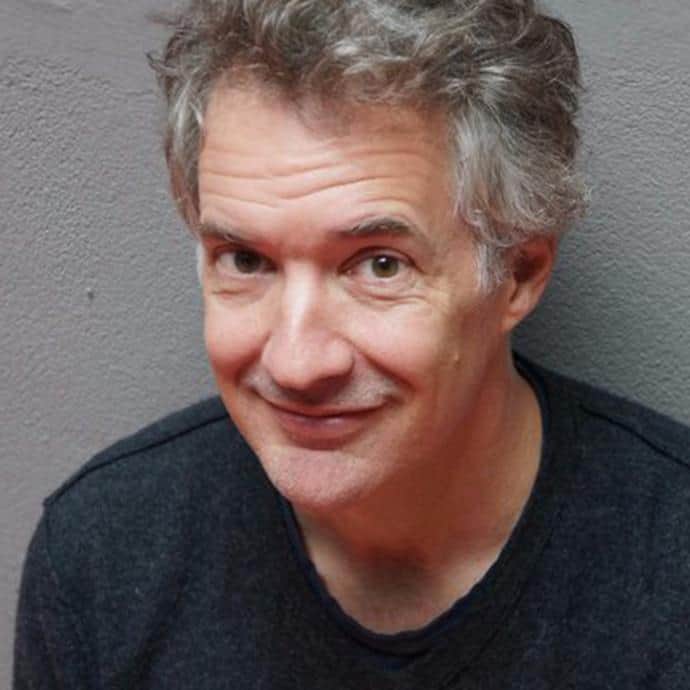Feeling Fearful: Why People Seek Out Conspiracy Theories | Eric Oliver
What makes us more likely to believe in conspiracy theories? Can our religious beliefs or political affiliations determine whether we’re less likely to believe in scientific facts? Why are health conspiracy theories some of the most widely believed notions? We revisit a conversation with Eric Oliver who talks us through the factors that drive people towards conspiracy theories.
Eric Oliver, PhD is a Professor of Political Science at the University of Chicago. Although the majority of his work is squarely in the realm of how we view our political systems and make political decisions, some of his work echoes moral psychology and sociology, and we find it fascinating. And, frankly, some of it is just downright fun to talk about.
Eric’s observations come from more than 20 years of research, dozens of peer-reviewed papers, and he is the author of 5 books on political science. We specifically talked about how liberals and conservatives name their children, the rise of intuitionism, having dinner with a sports star rather than a rock star, and of course, he spoke in-depth about conspiracy theories.
Most importantly, he walked us through some key aspects of how to have a conversation with someone who is on the opposite side of the conspiracy-theory belief system and, interestingly enough, it begins with empathy. Listen to the entire episode to hear all his insights and research anecdotes. They’ll put a smile on your face as well as fresh ideas into your brain!
We have been fans of his work for some time and are grateful that Eric shared his insights with us. We think you’ll become a fan, too, if you’re not already one.
[NOTE: This episode is republished from our interview with Eric in episode #172 from Sept 2020.]
© 2021 Behavioral Grooves
Topics
(3:17) Welcome and speed round.
(10:17) What characteristics predict whether you will believe in conspiracy theories?
(19:24) People rely on heuristics in times of uncertainty.
(24:48) Have conspiracy theories increased since Covid?
(27:03) What factors make us more likely to believe conspiracy theories?
(32:36) Do religious people tend to believe more in conspiracy theories?
(38:47) Why Donald Trump appeals to conspiracy theorists.
(42:50) How to talk to your relatives about their conspiracy theories?
(45:33) What music does Eric listen to?
(53:19) Grooving session with Tim and Kurt discussing Eric’s work.
Other Episodes of Behavioral Grooves to Enjoy
Andy Luttrell, Episode 175: Pro’s and Con’s of Persuasion When Issues are Moralized: https://behavioralgrooves.com/episode/andy-luttrell-pros-and-cons-of-persuasion-when-issues-are-moralized/
Kwame Christina, Episode 178: On Compassionate Curiosity, Social Justice Conversations, and Cinnamon Toast Crunch: https://behavioralgrooves.com/episode/kwame-christian-on-compassionate-curiosity-social-justice-conversations-and-cinnamon-toast-crunch/
Podcast: Play in new window | Download
AIRDATE: November 21, 2021 EPISODE 263
Podcast: Play in new window | Download
Feeling Fearful: Why People Seek Out Conspiracy Theories | Eric Oliver
Featured Guest

Eric Oliver, PhD.
LINKS
Eric Oliver, PhD: https://political-science.uchicago.edu/directory/eric-oliver
Jonathan Haidt, PhD: https://en.wikipedia.org/wiki/Jonathan_Haidt
James Frazer, “The Golden Bough”: https://en.wikipedia.org/wiki/The_Golden_Bough
Katherine Surma on Credulity: https://www.jericoliver.com/uploads/1/1/8/9/118973414/surmaoliver3.5.18-final.pdf
Laurie Santos, PhD: The Joe Effect: https://www.youtube.com/watch?v=GimHHAID_P0
Steve Kerr: https://en.wikipedia.org/wiki/Steve_Kerr
Colin Kaepernick: https://en.wikipedia.org/wiki/Colin_Kaepernick
Charles Manson: https://en.wikipedia.org/wiki/Charles_Manson
Andy Luttrell, Episode 175: Pro’s and Con’s of Persuasion When Issues are Moralized: https://behavioralgrooves.com/episode/andy-luttrell-pros-and-cons-of-persuasion-when-issues-are-moralized/
Kwame Christina, Episode 178: On Compassionate Curiosity, Social Justice Conversations, and Cinnamon Toast Crunch: https://behavioralgrooves.com/episode/kwame-christian-on-compassionate-curiosity-social-justice-conversations-and-cinnamon-toast-crunch/











